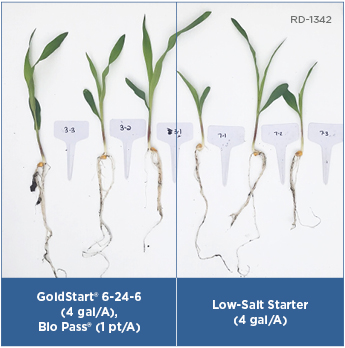Study: Atrazine Ban Could Eliminate Nearly 50,000 Jobs
Banning the agricultural herbicide atrazine would cost between 21,000 and 48,000 jobs from corn production losses alone, according to University of Chicago economist Don L. Coursey, Ph.D.
Coursey estimates atrazine’s annual production value to corn alone to be between $2.3 billion and $5 billion. Atrazine’s additional value to sorghum, sugarcane, and other uses increases these totals.
"The economic data on atrazine are very clear," Coursey says. "As a first-order estimate, banning atrazine will erase between 21,000 and 48,000 jobs related to or dependant on corn production, with additional job losses coming from both sugarcane and sorghum production losses.
"The range is wide because we have never before banned a product on which so many depend and for which suitable replacements have a wide variety of prices and application regimes. If all of that job loss were concentrated in the agricultural sector, its unemployment would grow by as much as 2.6 percent. Replacement costs for corn farmers could reach as high as $58 per acre."
Atrazine has been a mainstay of corn, sorghum, and sugarcane production for 50 years. The second most-used herbicide in the U.S., it controls a broad range of yield-robbing weeds, is safe for the crop and supports a variety of farming systems, including soil-saving conservation-till agriculture.
The U.S. EPA re-registered atrazine in 2006 based on the evidence of nearly 6,000 studies and more than 80,000 public comments. It began an additional, unscheduled review of atrazine in late 2009.
"Atrazine is essential to U.S. agriculture," ays Jere White, Triazine Network chairman and executive director of the Kansas Corn Growers Association. "We appreciate Dr. Coursey’s findings and will distribute them to our members, the EPA and to our elected representatives. With unemployment still painfully high across the nation, we can’t afford to lose as many as 50,000 jobs and the corn yield that sustains them."
EPA cited a media report and claims by a longtime anti-atrazine group when it announced the additional, unscheduled review. It was the first time in history EPA did not cite sound science to initiate a review process.
Coursey’s statement can be viewed at http://agsense.org.
(Source: Triazine Network news release)






